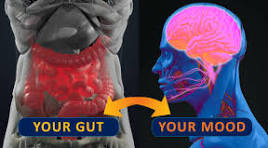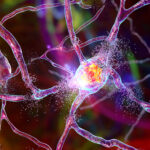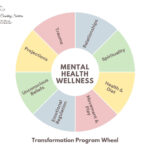We all know that feeling sluggish and uncomfortable after a bout of constipation. But did you know that gut health, and specifically constipation, can be linked to depression?
The gut, often referred to as our “second brain,” plays a crucial role in our overall health and well-being. It houses trillions of bacteria, collectively known as the gut microbiome, that influence not only digestion but also our immune system, hormone production, and even our mood.
The Gut-Brain Connection:
Our gut and brain are intricately connected through the enteric nervous system (ENS), a vast network of nerves that directly communicate with the central nervous system (CNS). This two-way communication allows the gut to influence brain function and vice versa.
Constipation and Depression:
Constipation, characterized by infrequent or difficult bowel movements, can disrupt the gut microbiome. This imbalance in gut bacteria can lead to:
- Increased inflammation: Chronic inflammation can trigger the release of stress hormones like cortisol, which can worsen depression symptoms.
- Altered neurotransmitter production: The gut produces a significant amount of serotonin, a key neurotransmitter involved in mood regulation. Constipation can disrupt serotonin production, contributing to feelings of low mood and anxiety.
- Leaky gut syndrome: In some cases, constipation can be a symptom of leaky gut syndrome, a condition where the gut lining becomes permeable, allowing harmful substances to enter the bloodstream. This can further contribute to inflammation and affect brain function.
How Constipation Triggers Depression from Nerves:
The ENS plays a crucial role in the gut-brain connection. When you’re constipated, the ENS sends signals to the brain indicating discomfort and distress. These signals can activate the stress response, leading to the release of hormones like cortisol and adrenaline. This can trigger feelings of anxiety, low mood, and even contribute to depression.
Additionally, constipation can directly impact the production of neurotransmitters like serotonin:
- Serotonin: As mentioned earlier, the gut produces a significant amount of serotonin, a key neurotransmitter involved in mood regulation. When constipation disrupts the gut microbiome, serotonin production can be affected, leading to low mood and depression.
- GABA: Another important neurotransmitter, GABA, has calming and inhibitory effects on the nervous system. Constipation can lead to decreased GABA production, further contributing to anxiety and depression.
Taking Action:
If you experience chronic constipation, it’s important to consult your doctor to rule out any underlying medical conditions. They can recommend treatment options and discuss potential connections to your mood. Additionally, consider these lifestyle changes to improve gut health and potentially alleviate depression symptoms:
- Increase fiber intake: Fiber helps regulate bowel movements and promotes gut microbiome diversity. Aim for 25-35 grams of fiber daily from fruits, vegetables, whole grains, and legumes.
- Stay hydrated: Drinking plenty of water keeps your digestive system moving and helps prevent constipation.
- Manage stress: Chronic stress can worsen constipation and depression. Practice relaxation techniques like yoga, meditation, or deep breathing.
- Consider probiotics: Probiotics are live bacteria that can help restore balance to your gut microbiome. Consult your doctor for personalized recommendations.
- Limit refined sugar and processed foods: These foods are often low in fiber and can contribute to constipation. Opt for whole, unprocessed foods like fruits, vegetables, and whole grains.
- Identify and address food intolerance: Food intolerances to wheat, corn, and dairy can contribute to constipation in some individuals. If you suspect a food intolerance, consider eliminating the suspected food from your diet for a period to see if symptoms improve. You can also consult a healthcare professional or registered dietitian for guidance on identifying and managing food intolerances.
Remember, gut health and mental health are closely linked. By taking care of your digestive system, you can potentially improve your mood and overall well-being.
References:
- “Association between constipation and depression and anxiety in the general population: A cross-sectional study” – Journal of Clinical Gastroenterology (2018): https://www.ncbi.nlm.nih.gov/books/NBK513291/
- “Gut microbiota and depression: A review of recent research” – World Journal of Gastroenterology (2020): https://pubmed.ncbi.nlm.nih.gov/36963238/
- “The effect of probiotic supplementation on depressive symptoms in patients with major depressive disorder: A randomized, double-blind, placebo-controlled trial” – Frontiers in Psychiatry (2021): https://www.ncbi.nlm.nih.gov/pmc/articles/PMC10052013/







